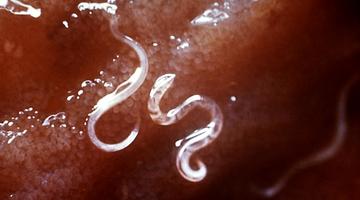Professor Graham Le Gros from the Malaghan Institute presents a case for New Zealand scientists to develop a vaccine against hookworm to help other people in the world who do not have the money to do this. His team are working on a vaccine that will prime the immune system to defeat the hookworm when it is in the lung.
Transcript
PROFESSOR GRAHAM LE GROS
We have all the tools available to make a vaccine against hookworm, and we work as a global collective. You cannot leave 1 billion people trapped in a cycle of poverty and disease, malnutrition and iron anaemia, mainly in South America, Asia, China, Vietnam and of course Africa. These people are the poorest people – they don’t have the money to pay the drug companies to make this thing.
Bill Gates was looking at this hookworm issue because it’s so important for the whole world. But I’ve got a grant from New Zealand Health Research – government – on hookworm for a million dollars, and I argued quite vociferously. It would be wrong to only do research that is only relevant to New Zealanders as such. That is very parochial and very narrow minded, because we benefit in our asthma and in our cancer research from all the research being done in America, Europe and Africa etc. Why should we be only takers? We’ve got to give something as well, because we benefit an awful lot from the rest of the world. And it’s a partnership, and in the international scientific community, we don’t hold back.
What we know is that, if you can prime the immune system beforehand so it’s ready before the hookworm comes in, it gives an edge to the immune system to get in ahead, because often it’s a race between the parasite to go through and the immune system to realise the parasite is there and start getting the right cells there to deal with it. So if you can pre-arm the immune system, when the parasite does come, it’s ready and it stops it in its tracks.
So we have been exploring the whole process how the parasite gets in the body – is the skin a good site to stop a worm? – looking in the lung and in the gut. And for many years, people have been thinking that you’ve got to fight the parasite at the gut, make a vaccine, which works in the gut. Makes sense. But we have been doing some research where we think the lung is the best place that actually stops the parasite. If you can get it at the lung, it weakens it so much it can’t survive in the gut.
We feel that, when it’s in the gut, it’s so tough – it’s got a big thick waxy shell made of sugars that are just resistant to everything – but in the lung, it’s at a phase where it’s uniquely susceptible for the immune system attack. So we are trying to get the lung immune system ready for when any parasites come in.
Acknowledgement:
CDC Centres for Disease Control & Prevention
Malaghan Institute of Medical Research


